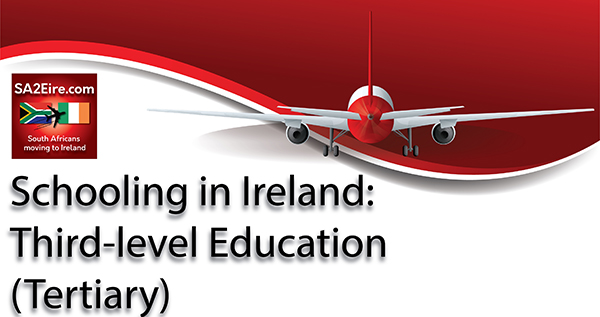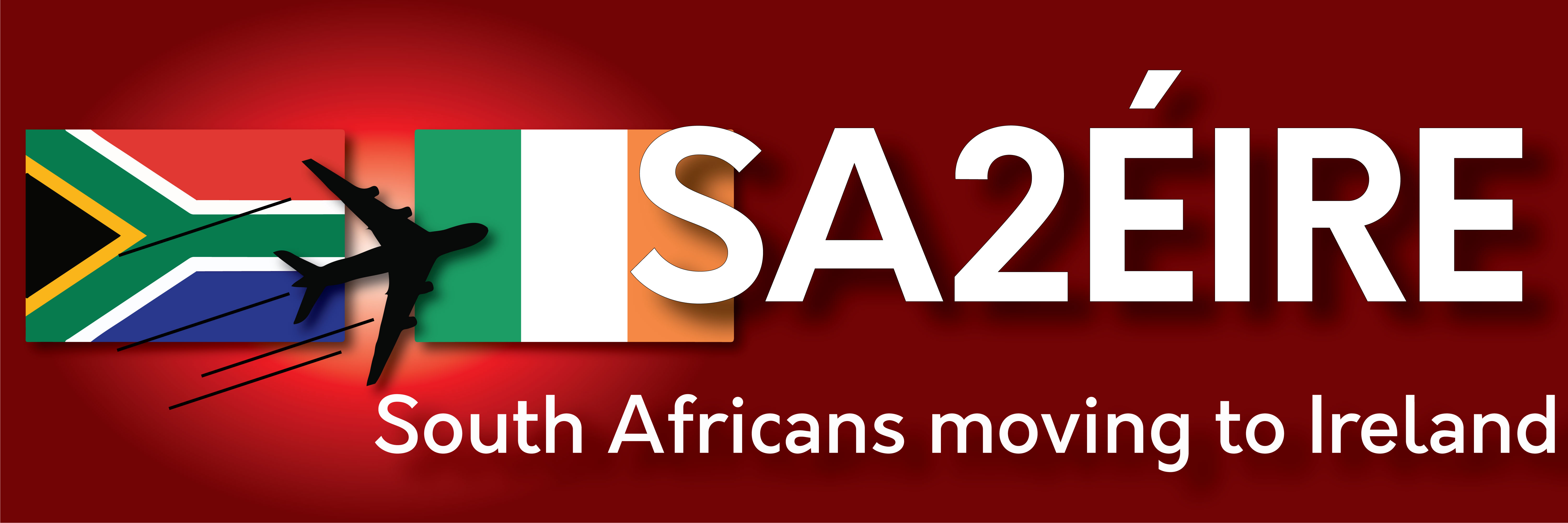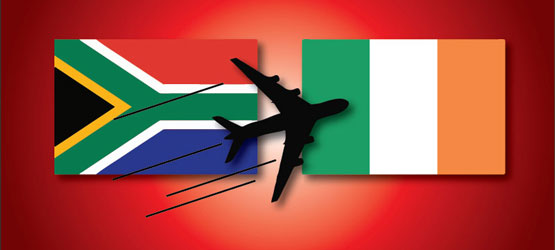Schooling in Ireland- third-level education (tertiary) - Immigration information for South Africans moving, immigrating, visiting or working in the Republic of Ireland

Higher Education in Ireland is provided mainly by 7 Universities, 14 Institutes of Technology and 7 Colleges of Education.
Access to higher education for students progressing from post primary education is based on the Leaving Certificate, which is the examination completed at the end of second level school.
Applications for entry to undergraduate courses in universities, colleges of education, institutes of technology and some other institutes of higher education, are processed by the Central Applications Office (CAO). The aim of the system is to process applications centrally and to deal with them in an efficient and fair manner. The participating institutions retain the function of making decisions on admissions.
There are other routes of entry for certain categories of students, for example mature students and those wishing to attend institutions not using the CAO application facility. Intending students should contact their institution of choice to confirm the exact application process in such cases. Some courses may have specific subject entry requirements, and intending students should check the CAO website, or contact their institution of choice, to confirm the exact requirements of the course they wish to undertake.
The leaving certificate students will apply through the CAO and have to enter a number of choices. When entering they are listing their choices of courses and also list institutions. They get offers based on the points they achieve in final exams (leaving cert results) so may not always get their first or even second choice. They may get one that's high on their list or one that's very low down in their list of choices. The student can decline a first round offer in the hopes that they may get a better one option in round two of offers, but it is a risk. If they accept the first offer they will get no further offers, or they may lose the first round offer by waiting for second round. The course and the institution are both determined by the points and the offer made. The offer has nothing to do with where the hometown is. The exact same course in different colleges will have different points requirements.
"Residence outside the EU (Past or Present): If you have at any time resided, or are at present resident, outside the EU, then you may be required to apply direct to some HEIs. It is important that such applicants read the appropriate section on page 20 of the 2021 CAO Handbook."
(B) Residence outside the EU: (past or present)
If you have at any time resided, or are at present resident, outside the EU, then you may be required to apply direct to some HEIs.(Higher Education Instututions)
You must contact the Admissions Office of each HEI in which you are interested to enquire whether you should apply through CAO or direct to the HEI. Different HEIs may have different policies. You should make such enquiries well in advance of the closing date of 1 February 2021 at 5:15pm. You may be able to view HEI policies on HEI websites. Failure to check the proper application procedure may have serious implications
Fees
To qualify for free fees, you must meet criteria with regard to:
- Residence and
- Nationality and immigration status and
- Course requirements
*Note the term free fees is excluding registration fees. These are in effect heavily subisdized tuition costs.
Residence
You must have been living in an EEA member state or Switzerland for at least 3 of the 5 years before starting your course. The members of the EEA (the European Economic Area) are the member states of the EU, along with Iceland, Norway and Liechtenstein.
Nationality and Immigration
- Be a citizen of an EEA member state or Switzerland or
- Have official refugee status or
- Be a family member of a refugee and have been granted permission to live in the State or
- Be a family member of an EU national and have permission to live in the State, with a stamp “4EUFAM” on your residence card or
- Have been granted humanitarian leave to remain in the State or
- Have been granted permission to remain in the State by the Minister for Justice and Equality, following a determination by the Minister not to make a deportation order under Section 3 of the Immigration Act 1999. (Appropriate Residency Stamp, e.g.: Stamp4)
Course Requirements
You must also fulfil all of the following 3 course requirements:
- You must be undertaking a full-time undergraduate course of at least 2 years' duration (or certain shorter courses in institutes of technology).
- You must be a first-time full-time undergraduate. However, students who already hold a Level 6 or a Level 7 qualification and are progressing to a Level 8 qualification on the National Framework of Qualifications may possibly be deemed eligible for free fees - you should check with the college providing the level 8 course. Also, you may be eligible for Free Fees, if you attend a course but did not complete it and are returning following a break of at least 5 years to pursue an approved course at the same level.
- In general, you must not be repeating the year because of failing your exams or changing course. This requirement may be waived if you repeat a year due to certified serious illness.
The undergraduate courses for which the free fees arrangements apply are courses in:
- Universities
- Institutes of technology
- Publicly funded colleges of education
- National College of Ireland
- A number of religious education institutions
Free fees do not apply to courses in private colleges, whether they have Quality and Qualifications Ireland (QQI) approval or not.
The fact that a course is listed by the Central Applications Office (CAO) is not, in itself, enough to make it a free fees course.
Student contribution
Most colleges charge an annual student contribution, formerly called the student services charge.
It is also known as a registration fee and it covers student services and examinations. The amount of the contribution varies from one institution to another. The maximum rate of the student contribution for the academic year 2020-2021 is €3,000.
EU Fees
If you do not qualify for free fees you may still be eligible for EU fee rates. EU fee rates are set by each individual third-level educational institution. You should contact the one you are interested in to find out about the EU fee rate and whether you qualify.
Some examples of when people might qualify for an EU fee rate are as follows:
- You originally qualified for free fees and are now repeating a year that you failed.
- You do not fulfil any of the 6 nationality and immigration status criteria listed above but have been tax resident for a number of years in an EEA member state or Switzerland. (However, as the third-level institutions are autonomous bodies, this is at the discretion of the institution concerned.)
Irish, EU, EEA or Swiss student who has spent at least five years in primary school or second level school in Ireland can avail of EU fee rates.
You must have been living in an EEA member state or Switzerland for at least 3 of the 5 years before starting your course. The members of the EEA (the European Economic Area) are the member states of the EU, along with Iceland, Norway and Liechtenstein.
Non-EU Fees
If you do not qualify for EU fees you can be charged non-EU fees. Each third-level educational institution sets its own fee rates. You should contact the ones you are interested in to find out more about their fees
The Student Grant Scheme is described in the document on Grants for students in further and higher education.
Detailed information about assistance with tuition fees is available on studentfinance.ie.
Important links:
 #MapMyMove- Our coaching Service - Confused or lost and need some direction?
#MapMyMove- Our coaching Service - Confused or lost and need some direction?
 Schooling in Ireland - The basics on how school works and the grades
Schooling in Ireland - The basics on how school works and the grades
 Enrollment at School - How to get your child in to a school
Enrollment at School - How to get your child in to a school
 Homeschooling - Curriculum and how to Home School
Homeschooling - Curriculum and how to Home School
 Types of Schools - The different types of schools in Ireland
Types of Schools - The different types of schools in Ireland
 Supports and transport - Special Needs supports and Transportation to school
Supports and transport - Special Needs supports and Transportation to school
 Third-level Education (Tertiary) - 3rd Level Education for children or adults
Third-level Education (Tertiary) - 3rd Level Education for children or adults
 Pre-School - How pre-school works in Ireland
Pre-School - How pre-school works in Ireland
 ECCE and Childcare in Ireland - The Early Childhood Care and Education and Childcare/ Aftercare
ECCE and Childcare in Ireland - The Early Childhood Care and Education and Childcare/ Aftercare
 The Cost of children in Ireland - Everything relating to the costs of bringing up children in Ireland
The Cost of children in Ireland - Everything relating to the costs of bringing up children in Ireland
 Educate Together Schools - A specific type of schooling system available across parts of Ireland
Educate Together Schools - A specific type of schooling system available across parts of Ireland
 Child Benefit, HRC1 form and Operational Guidelines on Habitual Residence - Looking deeper at Habitual Residence, Child Benefit and HRC1 form
Child Benefit, HRC1 form and Operational Guidelines on Habitual Residence - Looking deeper at Habitual Residence, Child Benefit and HRC1 form
 Resources for this topic- Education related - Links to child benefits, childcare, ECCE, preschool, homeschooling, National school, secondaary school and third-level education
Resources for this topic- Education related - Links to child benefits, childcare, ECCE, preschool, homeschooling, National school, secondaary school and third-level education
 Resources for this topic- Special Needs People related - Links to getting assistance with various special needs and disabilities, adults and children
Resources for this topic- Special Needs People related - Links to getting assistance with various special needs and disabilities, adults and children
 List of colleges, universities and Institutes of Technology in Ireland
List of colleges, universities and Institutes of Technology in Ireland
 The CAO 2022/23 handbook - Central Applications Office for enrollment into Tertiary education
The CAO 2022/23 handbook - Central Applications Office for enrollment into Tertiary education
 Irish Times- Article on the costs of college
Irish Times- Article on the costs of college
 Fees and Grants/Free Fees Initiative
Fees and Grants/Free Fees Initiative
 Community Education - Community education refers to adult education and learning
Community Education - Community education refers to adult education and learning
 Back to Education Program - support you to take part in educational and personal development courses that will help you to access employment
Back to Education Program - support you to take part in educational and personal development courses that will help you to access employment
 Youth Centres - Places for 12-25years to seek assistance in various ways
Youth Centres - Places for 12-25years to seek assistance in various ways
 Irish Times Feeder schools - which secondary schools feed into which tertiary
Irish Times Feeder schools - which secondary schools feed into which tertiary


